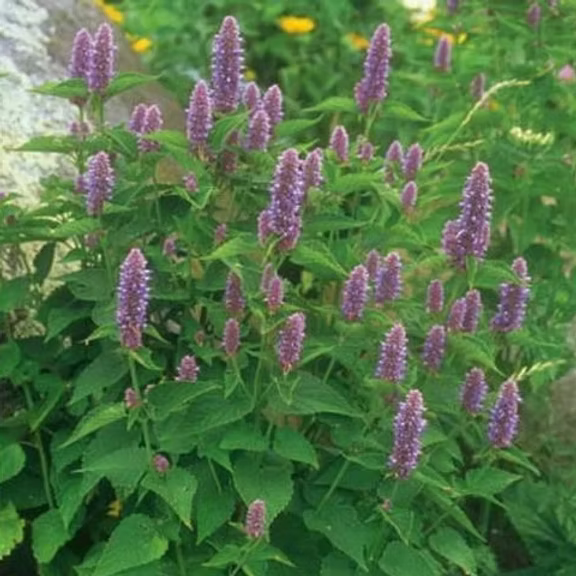Dunford Apothecary
HYSSOP ESSENTIAL OIL, SPAIN
HYSSOP ESSENTIAL OIL, SPAIN
Couldn't load pickup availability
Latin Name: Hyssopus officinalis var. decumbens
Plant Part: Aerial parts (leaves and flowering tops)
Country of Origin: Spain
Extraction Method: Steam distilled
Description:
Hyssop decumbens is a gentle yet powerful chemotype of the traditional hyssop plant, prized in aromatherapy for its well-rounded therapeutic effects and exceptional safety profile. Unlike its more aggressive cousin Hyssopus officinalis (ct. pinocamphone), the decumbens variety contains very low levels of neurotoxic ketones, making it a preferred choice for sensitive individuals and broader use.
This rare essential oil boasts a crisp, sweet-herbaceous, and lightly camphoraceous aroma with subtle floral and green undertones. Traditionally revered since biblical times—mentioned as a sacred cleansing herb in ancient Hebrew rituals—hyssop has long been associated with purification, healing, and respiratory support.
Our hyssop decumbens essential oil is artisanally steam-distilled from the flowering aerial parts of the plant and is ideal for supporting healthy lungs, bolstering the immune system, and gently clearing energetic stagnation.
Usage Ideas:
-
Respiratory Support: Diffuse or use in steam inhalation to ease congestion and support the breath.
-
Immune Boosting: Add to a carrier oil and massage on the chest, back, or feet during times of illness.
-
Energy Work: Use in cleansing rituals or sprays to support emotional release and energetic purification.
-
Skincare: Add a drop to facial steams or spot treatments for its purifying and soothing qualities (dilute well).
-
Meditation & Ritual: A clarifying companion for breathwork, intention-setting, and inner stillness.
Safety Considerations:
-
Hyssop decumbens is significantly safer than Hyssopus officinalis ct. pinocamphone but should still be used mindfully.
-
Avoid during pregnancy, breastfeeding, or with children under 5.
-
Always dilute before topical use and perform a patch test.
-
Do not ingest.
-
Use caution with epileptics or those with seizure disorders—consult a qualified practitioner.
References:
-
Schnaubelt, K. (2011). The Healing Intelligence of Essential Oils.
-
Battaglia, S. (2003). The Complete Guide to Aromatherapy.
-
Tisserand, R. & Young, R. (2014). Essential Oil Safety (2nd ed.).
-
Mojay, G. (1996). Aromatherapy for Healing the Spirit.
Share

